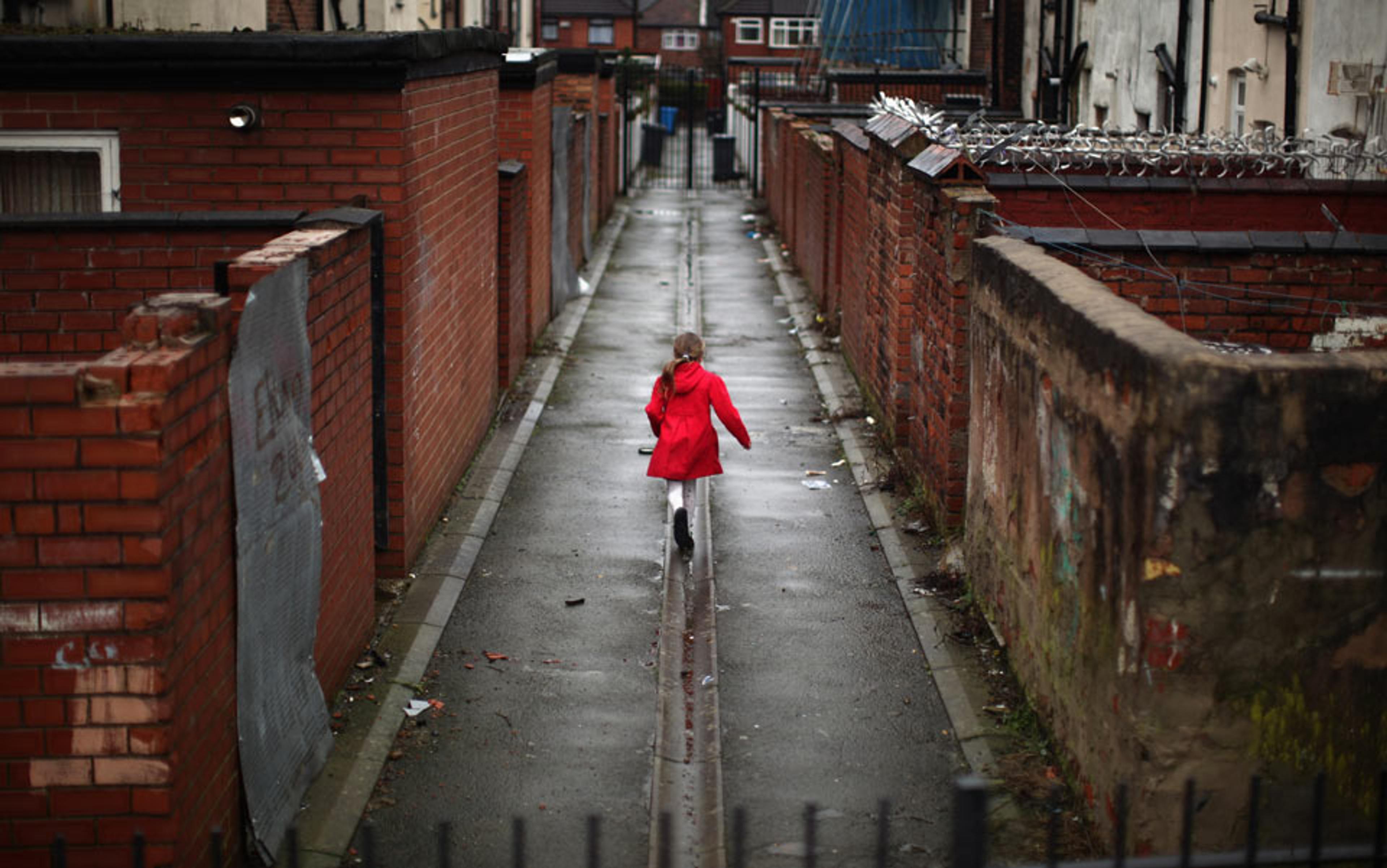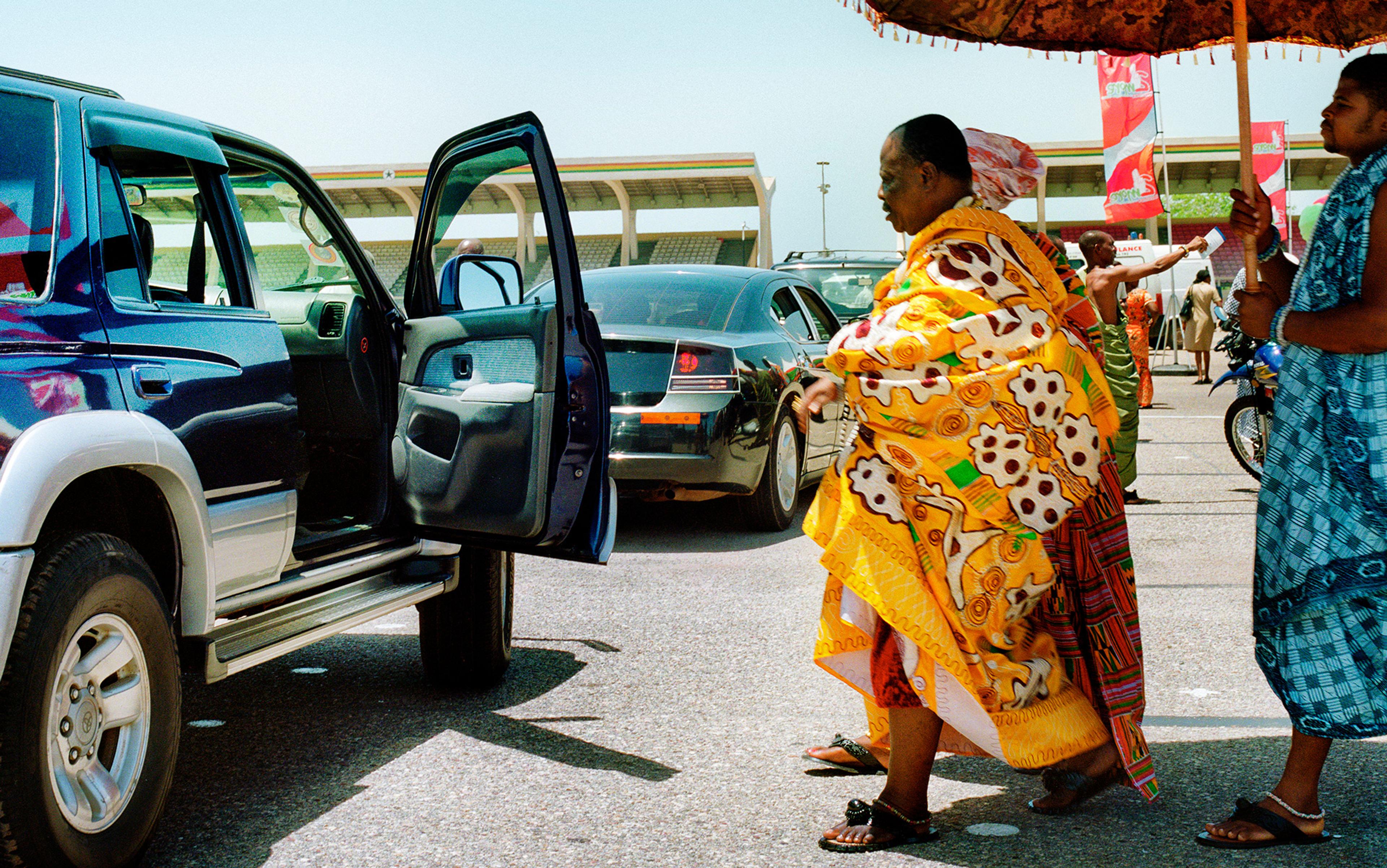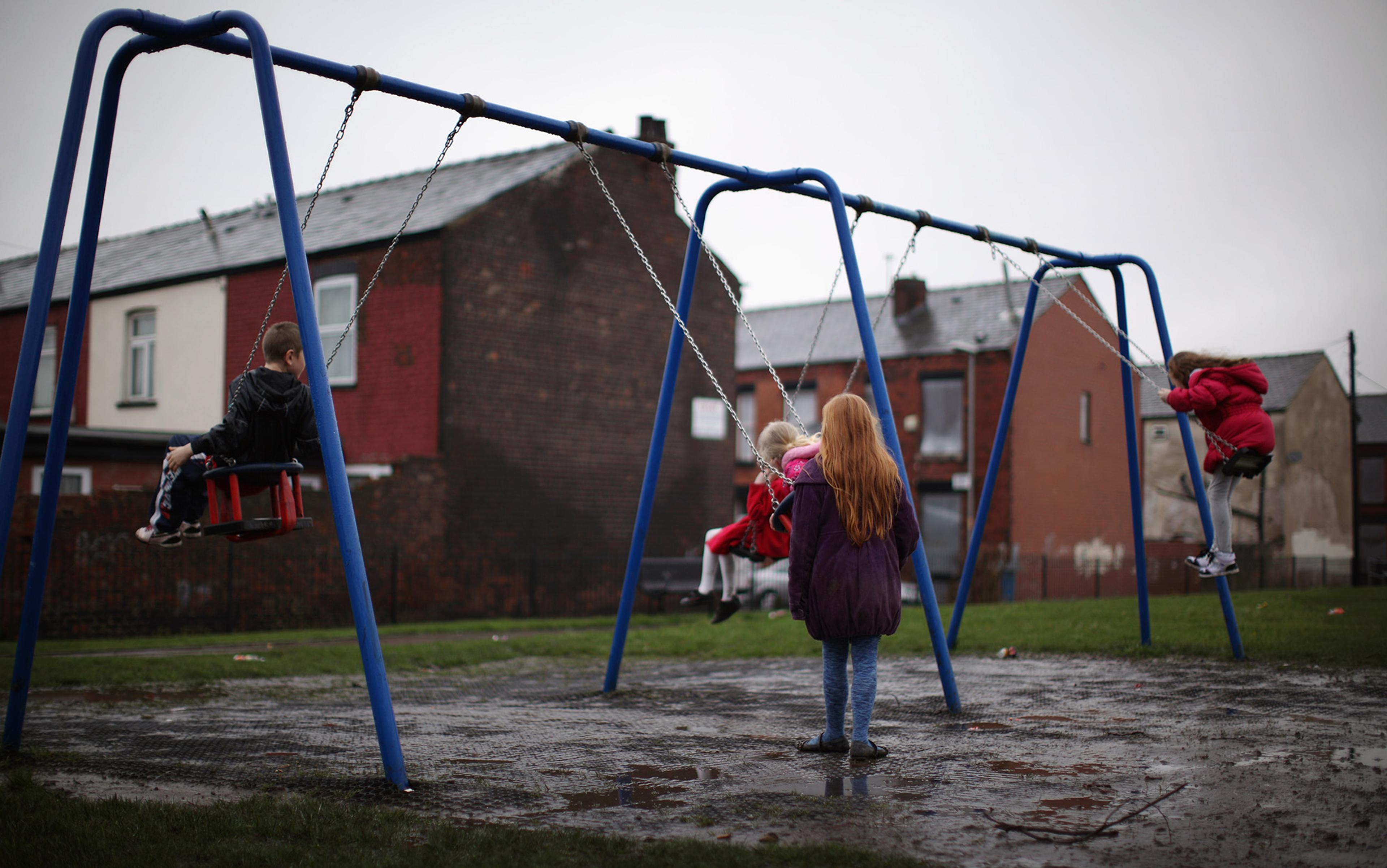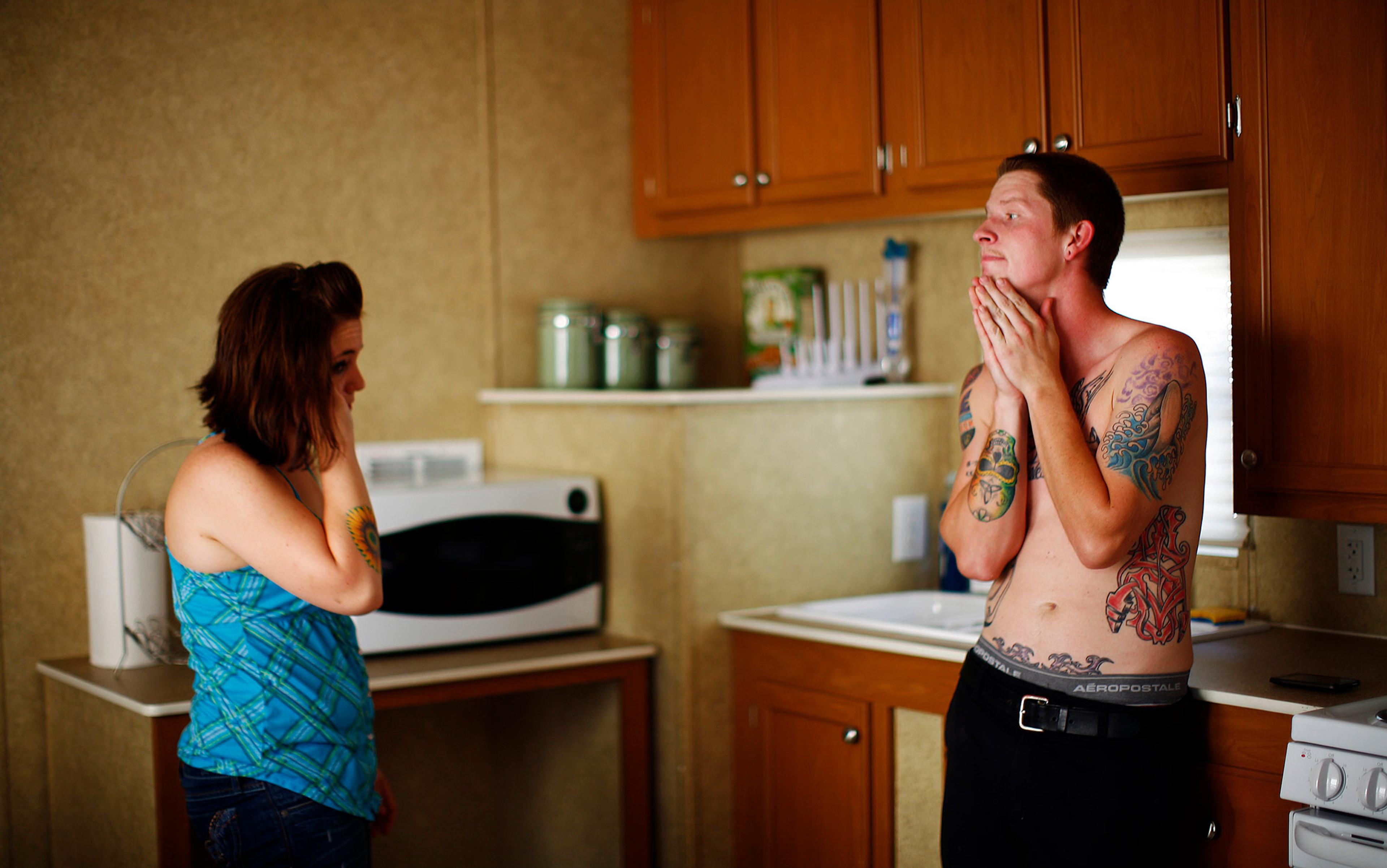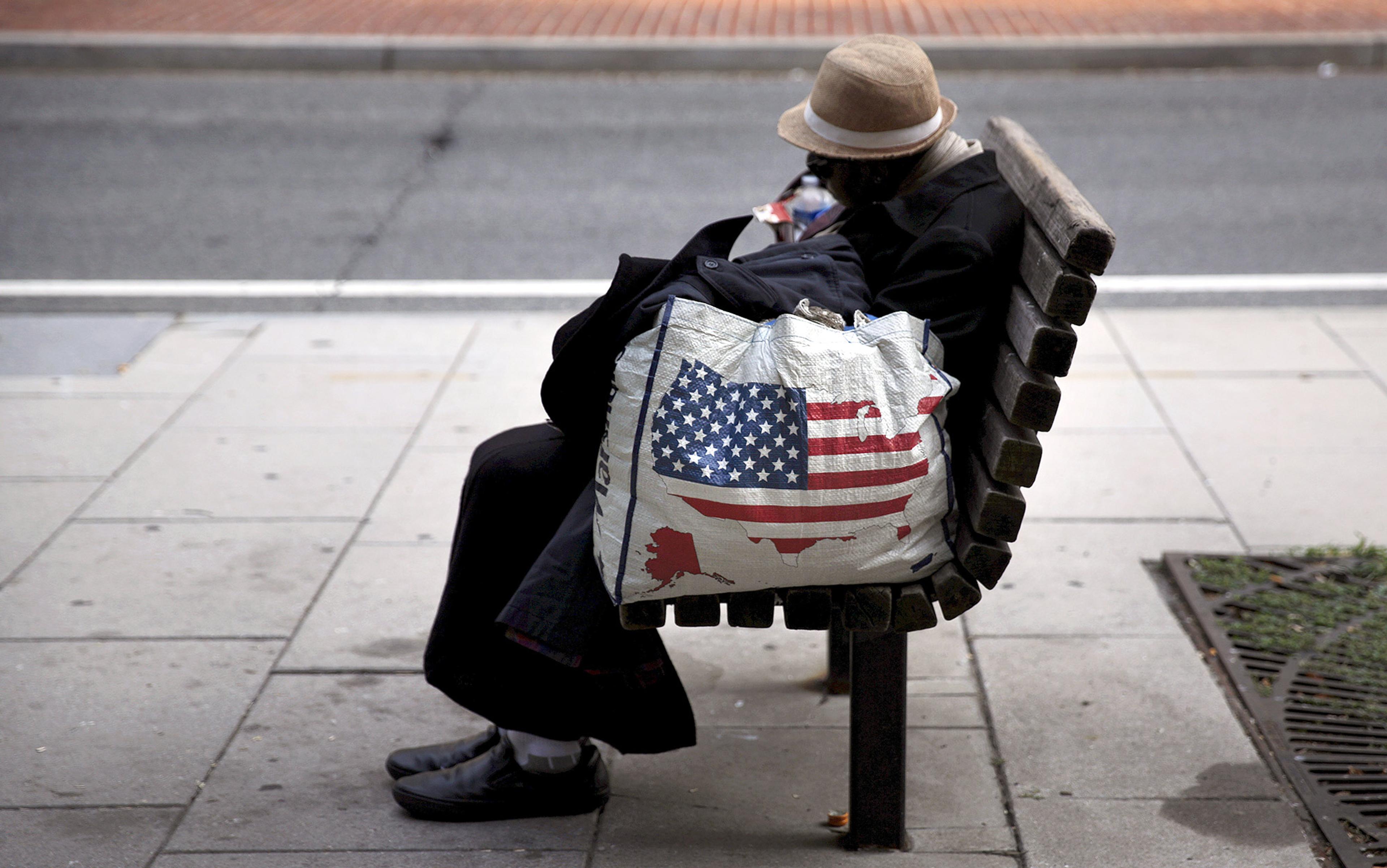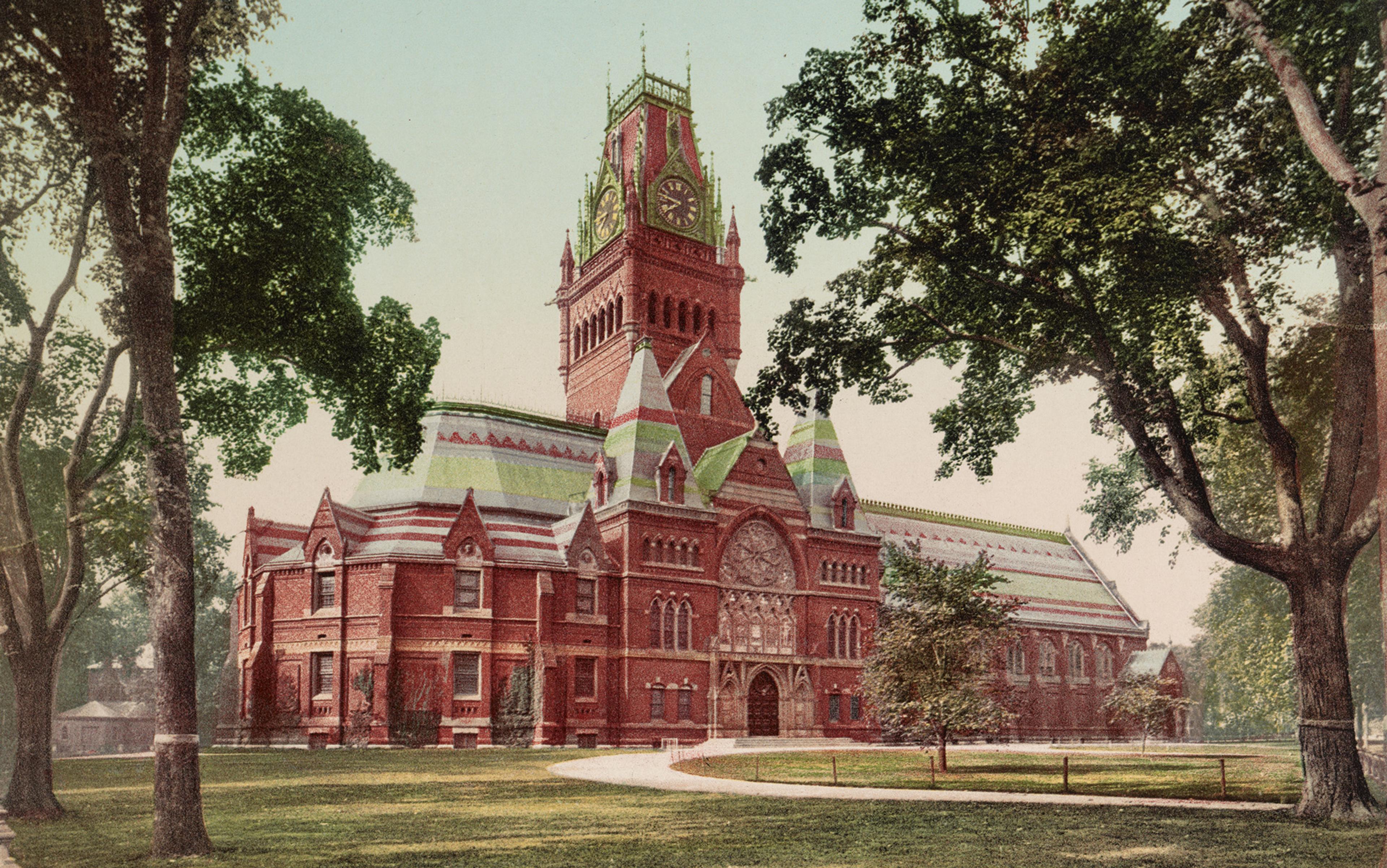The working-class individual is squeezed from both sides: from the top down and from the ground up, both from without and from within. The cost of negotiating this double bind is, for many, a period of estrangement — from oneself, or from others — and turmoil. I experienced this bind first-hand, while growing up, swotty and desperate to ‘get out’, on the large, 1960s-built council estate just outside Birmingham where I attended primary and secondary school.
As a body of schoolchildren, we were insulted by the education we received, in a half-empty school that was falling down, in a society which itself, in the late 1980s and early 1990s, appeared to be falling down. We spent our formative years being insulted and we knew it. Individual teachers didn’t insult us. Many of them took us seriously, or at least as seriously as we were able to tolerate: the problem was that we couldn’t or wouldn’t take ourselves seriously. The conditions in which we were expected, and were trying, to form ourselves and our futures didn’t warrant it. The institution, the set-up, the joke of it, was the insult.
My childhood experience was not an isolated one: rather it was typical of a deeply — and increasingly — divided society. In the fields of sociology of education, epidemiology, demographics and human geography, the facts and processes of widening inequality are exposed for all to see. Yet groundbreaking research by the likes of geographer Danny Dorling, epidemiologist Michael Marmot, and the sociologists Diane Reay and Andrew Sayer, among countless others, goes under-reported in the mass media and disregarded by policymakers — in all likelihood because their evidence shows up the true extent of the damage caused by high levels of economic and social inequality.
What is social science research for, if not to help us to improve lives? Evidence-based policy-making ought to be a fact of government rather than an intriguing concept, yet since 2010 there has not even been a Chief Social Scientist to advise the UK government of the latest research and to ensure that the most pertinent findings influence legislation. In February last year, the House of Lords Science and Technology Select Committee called for the restoration of the post, citing ‘the all-pervasive importance of social science advice to policy-making in all departments’. The post remains empty.
It’s not that there’s no popular appetite for such bitter-tasting fare: Richard Wilkinson and Kate Pickett’s book The Spirit Level, thick with graphs and jaw-dropping statistics on inequality, was a best-seller when it was published in 2009, and still sells healthily four years on, while Michael Marmot’s Status Syndrome (2004) also found a major publisher, Bloomsbury, a few years earlier. Yet it’s probably true to say that the more inconvenient the truths unearthed by social science researchers, the less likely they are to receive wide exposure.
Danny Dorling is arguably the preeminent social scientist of his generation, bringing together the disciplines of geography, sociology, and epidemiology to create a troubling portrait of Britain as it becomes ever more polarised through region and neighbourhood. In his book Identity in Britain: A Cradle-to-Grave Atlas (2007) — published by the academic imprint Policy — Dorling and his co-author, Bethan Thomas, report that there is not a single large neighbourhood in the UK in which under-fives from the highest social class mix socially with children from the classes below.
They also found that young people from some high-income neighbourhoods were 50 times more likely to attend an elite university than those in low-income areas, while there were some areas from which (at 2007) not a single young person attended an elite university. Dorling sees these figures as a symptom of widening economic inequality between rich and poor areas, in which resources — in the form of good-quality public amenities such as schools, surgeries and libraries, and a safe living environment — are overwhelmingly concentrated in the former.
Against this backdrop of structural stagnation in British society, reflected in the gap in opportunity between those in better-off and worse-off areas, is the more subtle, yet arguably more profound, impact of social class as it’s experienced — as it’s felt — by those seeking to improve their fortunes through education, or moving upwards through the labour market.
Will Atkinson, a sociologist at Bristol University whose work examines the relationship between class and education, has found that for all the UK Government’s Big Society spin — the claim that ‘we’re all in this together’ — there is still a deep class bias to how people get on, which in turn underpins their confidence to embark on the escalator of economic and social mobility, how far they feel entitled to ascend and, of course, whether they can manage to get on the escalator in the first place.
Some, of course, will regard the very idea of climbing a ladder away from one’s roots towards a supposedly elevated position as insulting and deferential. As with anything to do with class relationships, the politics of social mobility are tricky and sensitive to negotiate. Yet advocates on the political right and centre continue to promote social mobility as a panacea for inequality.
The instruction, the injunction, at home was to pretend that nothing had changed — that it was important to defer or deny your full capabilities
Social mobility is, by its nature, an ideal of improvement for the individual, not society as a whole, and creates an intolerable tension for individuals caught up in its demands. This pressure is especially visible in the field of education, where the state, operating under the guise of neighbourhood schools, informs working-class schoolchildren that they must reject the values of their parents and community if they can ever hope to be a worthy part of society.
Back in the 1950s, the sociolinguist Basil Bernstein argued that working-class and middle-class people communicated in such entirely different terms that the former were tacitly disadvantaged by an education system that valued abstract learning over the affirmation of shared experience. One style was not superior to the other in his view; it’s simply that schools and teachers often unwittingly reinforced the idea that a child must get rid of one in order to learn the other.
Analysing the way in which working-class and middle-class people used language in everyday situations, Bernstein, who worked at the Institute of Education in London, realised that working-class speech focused on describing acts as they were taking place or, if they took place in the past, as if they were taking place in the present. Working-class speech aimed to include you, the listener, in the flow of the telling, whereas middle-class speech gravitated towards classifying and contextualising events: it aimed to assert the speaker’s presence and significance at the centre of the story.
Working-class speech, in my experience, is fragmentary by nature. By sticking with the description of individual events rather than unifying them into a larger narrative, you accept the contingency of things, as it might all change by tomorrow, and because what you’ve said is only likely to have significance in the specific context in which you said it. Middle-class speech, by contrast, smacks of grandeur, because it seeks to place feelings and events in a more universal context, with the inference that the speaker and his perceptions matter in the greater scheme of things.
What gives middle-class speech its power, you might argue, is not its ‘formality’, as Bernstein describes this ‘elaborated’ code (in opposition to the ‘informal’ or ‘restricted’ code of working-class speech), but its ability to translate material security into security of the self. It affirms the greater effect that the middle-class person tends to have on the world.
Sociologists of education including Diane Reay and Gillian Evans in the UK, and Annette Lareau in the US, have argued that, while working-class parents continue to nurture their children according to an idea that their personalities are inherent, and therefore neither possible nor desirable to change, teachers enter children’s lives at the age of five and demand change according to a set of external values based on character-building and the continual development of skills. In other words, teachers expect children not only to take part in forming their own futures, but to be aware of how they are doing it.
As Reay and her co-researchers said in their 2008 study of working-class young people entering higher education, ‘students tend to choose a university with which they feel comfortable, where there are “people like us”’.
We were atomised at school, and I wonder whether that was the case because school became an extension of our atomised families, detached from the city, full of troubles and worry, ingrained with insecurity
They compared four universities. ‘Midland’ and ‘Southern’ were two Russell Group institutions chosen for their sample. The less prestigious ‘Eastern’ and ‘Northern’ provided a setting for degree-level study which was ‘characterised by continuity rather than … change and transformation’, and which ‘often lulls working-class students into a sense of security and symmetry’, providing a comfort zone in which the working-class students felt they were accepted.
This often involved carrying over from school into higher education a sense — a stance, maybe — of not caring too much, that working-class disdain for ‘keenness’ still serving to keep the group members in line with each other. Working-class students at these colleges quickly learnt to keep quiet about loving their subject. ‘I really don’t want to be the clever one or the swot,’ said Kylie, a history student at ‘Northern’ who found that she fitted in ‘socially, totally’ but not ‘academically’. Conversely, on her forthcoming Masters course at a Russell Group university, she expected she would ‘fit in fine academically but won’t fit in at all socially’.
At the elite ‘Southern’ university, by comparison, students came in three dispositions, according to a working-class law student: ‘geeky, geekier and even more geeky’. Those who applied to the university tended to be the students who were long-used to standing out on account of their studiousness, and therefore had the hide to withstand social slights. But this resilience created problems of its own: one working-class student at ‘Southern’ told the researchers that she had learnt not to mention anything pertaining to university life when visiting her mother back home: ‘It’s just like, don’t go there.’
The instruction, the injunction, at home was to pretend that nothing had changed — that it was important to defer or deny your full capabilities — in order not to offend or belittle the person left behind. The potential for offence was felt in both directions: in order to remain equal in the mother’s eyes, the student and her mother had to remain on the same experiential and educational plane.
My own experiences at school suggested that there are some children who want to learn, and some who don’t, and that if they don’t then they will suffer from their inattention some way down the line. I wanted to do nothing else but learn, which pleased my teachers, who channelled extra energy into helping me to learn more.
There were many other pupils, particularly girls, who showed a strong, but less desperate and obsessive desire to learn, but who were helped by their parents and by their teachers to identify with and develop skills more suited to their obvious fate, which was to work in routine jobs for a few years before setting up home and having children.
Some girls, on the other hand, had so little desire to learn, it appeared, that they took only subjects such as Hair and Beauty or Child Development: provided by the teachers for those whose entire worlds, they assumed, would be focused on the procurement of male approval and then on the raising of children. This is what girls expected of themselves at 14, and what they were wholeheartedly invited to do: to put an end to other likely possibilities right there.
They’d already learnt not to take themselves seriously — and no one, any longer, expected that they should. It might be that class had nothing to do with it, but I find that difficult to believe. We were atomised at school, and I wonder whether that was the case because school became an extension of our atomised families, detached from the city, full of troubles and worry, ingrained with insecurity. Whether we were aware of it or not, we came into the classroom full of anxieties which we had learnt to ignore, and we were supposed just to get on with it.
If you could learn in a school, like ours, which had 600 unfilled places — effectively an abandoned school — then you could convince yourself that hard work and merit alone would bring you success, and no one would step in to correct you. On the other, better-off side of the borough, meanwhile, kids like me were ten-a-penny, and they filled the sixth-form colleges and, after that, universities, without anyone passing comment on their ‘willingness to learn’. But everything I did, intentionally or not, was in opposition to what everyone else did, and this knowledge became a reward in itself. I could say, I’m different, me, and that’s not only all right, but better than being like everyone else.
As Dorling reports, there is some evidence that living conditions eased somewhat in Britain during the Labour Government era of high public spending, and that, during this period, working-class people began slowly to make up the losses of previous generations through improved access to further and higher education. For many, the idea of ‘uni’ was no longer distant or altogether unmentioned. Although this new, working- and lower-middle-class cohort has tended to opt for ex-polytechnics and colleges of higher education as opposed to more prestigious institutions, this has still translated into social mobility for many young people who, without a degree, would never have had access to professional or white-collar jobs.
Moreover, research published by the Resolution Foundation in 2011 — a think tank that focuses on the effects of living on low incomes — suggests that mobility, measured in terms of how many people experienced growth in earnings that took them from the lower to the higher end of the spectrum, increased in the 2000s compared with the 1990s, but only for those with higher qualifications. The earnings penalty for those without degrees has become more pronounced over the same period of time, from which we can deduce that social mobility is ever more closely linked with the amount of time spent in non-compulsory education.
But there is another bind. Social mobility comes with an emotional cost to the individual, particularly in the current social landscape of high inequality. To think otherwise suits a neoliberal political agenda that is geared towards placing the onus for economic growth and social improvement on to individuals. On the other hand, rejecting social mobility as an ideal suggests that there will always be a working class and that its members should continue to know their place. In a more open society, this bind would not exist: every individual would have the chance to accumulate educational and occupational experience — if not always money — over time, so that society is not deprived, the way it is at present, of vast reserves of unused talent.
What does this mean for society, when the powerlessness of one class is internalised by its members, and individuals actively hinder their own progress? Nothing can be done if not done together. And if we refuse, or are unable, to work together, because the classes have ossified into groups that don’t trust each other and don’t meet, does that mean an end to progress?
Simply seeking to make living conditions better for the working class suggests that most people do not believe the status quo can be altered. Rather we should be striving for a transformation of society so that individuals are not so thoroughly bound by the circumstances of their birth. If the best work of our social scientists was made common knowledge, I can’t help thinking there’d be a revolution.
